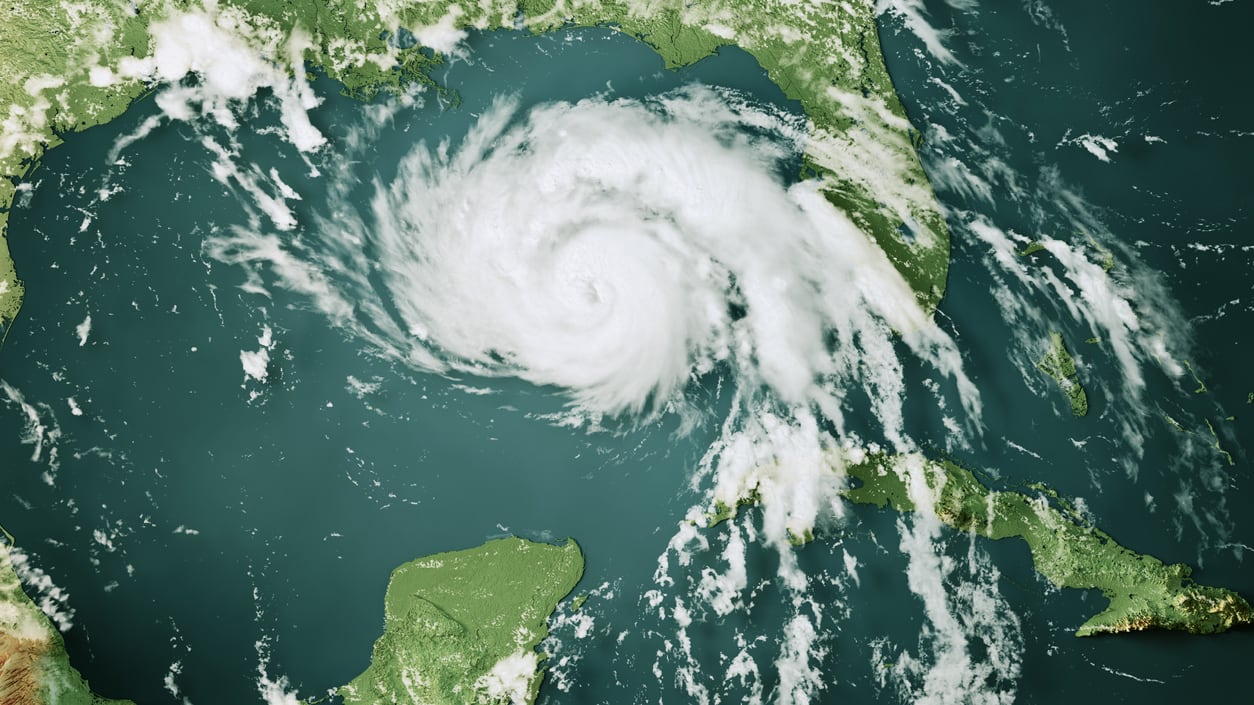Tropical Storm Idalia has strengthened into a hurricane and is expected to become even stronger. The National Hurricane Center expects Idalia to rapidly intensify into an extremely dangerous major hurricane before it makes landfall on Florida's northern Gulf Coast on Aug. 30.
Employers and employees should make preparations now for the storm and plans for recovery when the hurricane has passed.
Hurricanes and natural disasters can be incredibly disruptive to businesses and employees' lives.
When Hurricane Harvey made landfall in Texas in August 2017, Jill Koob, SHRM-SCP, was on the front lines of the storm. The owner of Energize HR had 4 feet of water in her family's home. Luckily, her family had evacuated, but friends and a client were stuck nearby. Koob's family ended up rescuing them by boat because first responders were overwhelmed.
With the knowledge gained from that experience, Koob says it pays to be prepared for the worst.
"Awareness is the key. We get so busy with our day-to-day lives we put things off," she said. "HR can make this an opportunity to educate and encourage employees to be prepared."
The National Oceanic and Atmospheric Administration (NOAA) predicted 12-17 named storms for the 2023 season, of which five to nine could become hurricanes. In addition, scientists expected one to four storms could become major hurricanes. Hurricane season lasts from June 1 to Nov. 30.
"The pandemic may have actually helped companies prepare for hurricane season," Koob said. "In the past few years, companies have learned to navigate a fully and partially remote team that includes team members that are out of state."
Planning for disruptions continues to be a high priority during the hurricane season, said Heather Deyrieux, manager of workforce planning for Sarasota County in Florida.
"For those that can work remotely, we've had a few years to practice that setup, so it should allow for easier transitions during activations," said Deyrieux.
The increase in remote and hybrid work arrangements has underscored the importance of recognizing how far-flung employees may be affected by natural disasters.
"We have to be cognizant that while we're operating and doing just fine, employees on the other side of the state might be getting beaten down by a hurricane or tropical storm," said Chad V. Sorenson, president of Adaptive HR Solutions in Saint Johns, Fla. "The same is true whether there is a wildfire in California, a blizzard in Montana or a tropical storm on the Gulf Coast. You need to be aware of what is happening in all those areas, not just at corporate headquarters."
Create a Plan
Waiting to create a response plan until a storm happens is too late. Every company should have a business continuity plan and an employee emergency action team to maintain business operations during an inclement weather event, Koob said.
"There should also be an inclement weather policy that employees know and understand," she noted. "[It should detail not only] their pay if the office is open, but also what happens if the employee can't make it there, or if the office is closed and there are no remote-work options available."
Sorenson encouraged employers to update plans annually. A plan created three or five years ago is already outdated, given the dramatic shift from in-person to remote and hybrid work.
"It is critical to have regular training, annually at a minimum, to discuss hurricane preparedness for both the office and their homes," Deyrieux added. "Each employee should have a plan and timeline of what needs to be done to prepare for a storm of significance. Your local municipalities can also provide free guest speakers on this topic."
Communication Is Critical
Immediately after a hurricane's landfall, flooding and damage to power lines, homes and buildings are common. Koob said the priority is to contact all employees to ensure they are OK and see if they need assistance or time away to deal with the damage.
"After which, providing all employees information on what to expect regarding the office reopening, co-working options, and remote work if they have Internet and electricity is essential," she said.
There is a real chance that cell towers, phone lines and Internet connections will go down. Sorenson suggests creating a hub—in Slack, on the company intranet, in Microsoft Teams or on some other platform—where employees can check for updates as their connectivity returns.
Protecting Your Property
In addition to ensuring your people are safe and receive the support they need, another critical part of hurricane preparedness involves readying the facility and securing equipment, assets and files. Sorenson recalls the damage Hurricane Irma caused in Jacksonville, Fla., in 2017. The tallest building in the city was closed for weeks because of severe flooding and damage to life safety systems.
"Companies impacted by that had to walk up dark stairs in stairwells to get a server and bring it out and have a temporary office for weeks or months," he said. "With cloud computing, we have more access, but you have to think of what you physically have to do to secure your property."
Katie Navarra is a freelance writer in New York state. Beth Mirza is director of online content for SHRM.
An organization run by AI is not a futuristic concept. Such technology is already a part of many workplaces and will continue to shape the labor market and HR. Here's how employers and employees can successfully manage generative AI and other AI-powered systems.




